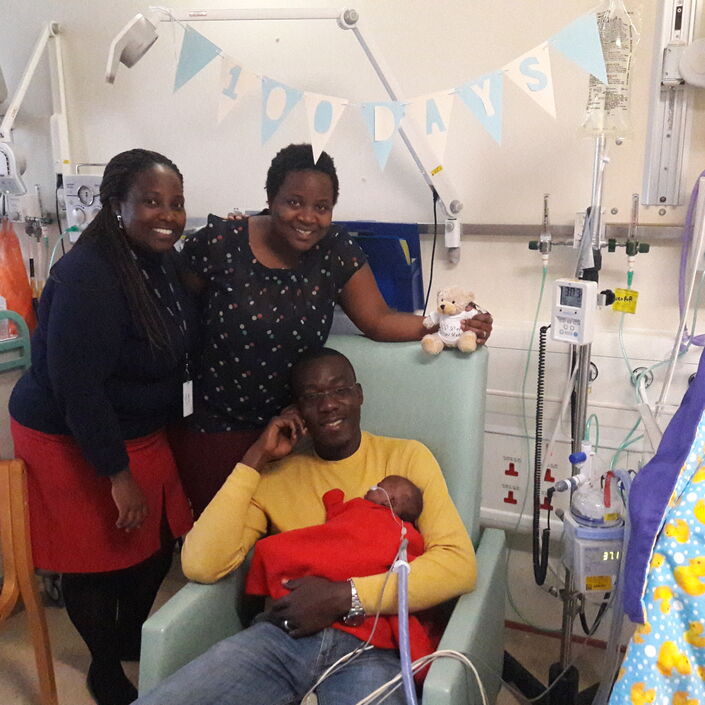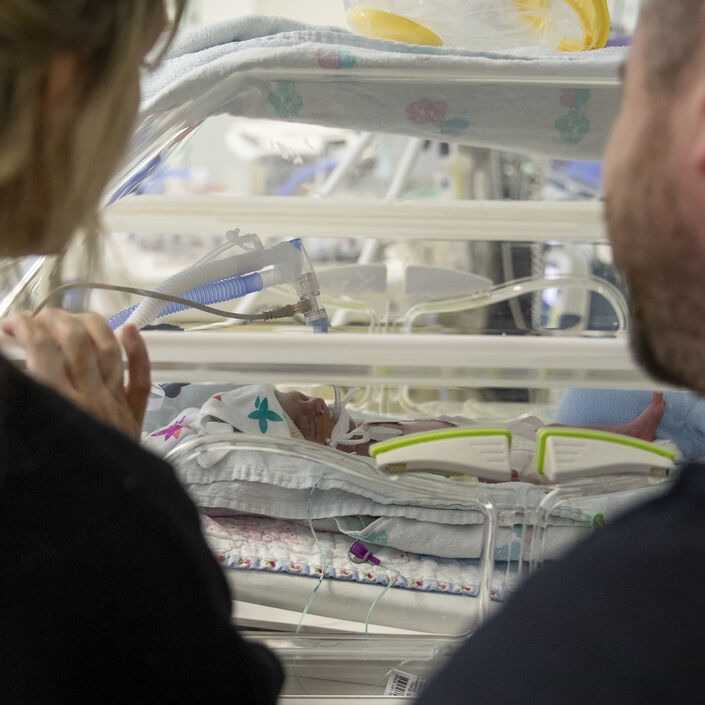There are many different people working hard to care for your baby on the unit, and this can make it feel like your role as a parent isn’t very clear to begin with.
Being involved in their everyday care can help you and them.
And there are also some important things that only you can do for your baby.
Your role is unique
Your first few moments with your baby might not have been as you imagined.
You might have had a traumatic or emergency birth, and you might not have got to hold your baby right away.
It can also feel harder to do all the things parents usually do with their newborn baby if they are in neonatal care.
Remember – you are your baby’s parent. You know them best, and they know you. Even if the beginning of their life isn’t what you had imagined, nobody can replace your role.
You know your baby
The health professionals looking after your baby’s medical needs are experts, trained and experienced in caring for babies in neonatal care. They know what care they need and how to give that to them in the way that’s best for them.
But as a parent, you know your baby better than anyone. You might find that you can sense when something is different about your baby.
As a parent, you are also likely to be with your baby much more than any staff member. This means you might spot changes and differences more quickly.
You might notice a difference in the way your baby is responding to your voice or touch, or that they’re feeding differently.
You might not feel able to explain exactly what you’re noticing. You might not be able to be specific – you might just feel that something is different.
This is okay – health professionals will find it helpful to know that something feels different, even if you don’t know what.
Getting to know your baby can help health professionals
It’s really helpful to tell the health professionals if you’re worried about your baby, or if you’ve noticed a change.
Health professionals often tell us about how important parents’ intuition is to their care for babies on the unit.
It can mean that their baby is watched more closely, or tests are carried out to check what might be happening.
It can mean that problems are found at the earliest point and babies can be helped as soon as possible.
Spending time watching your baby on the neonatal unit can help you to understand what your baby is telling you – like when they are distressed or in pain. These are sometimes called their cues.
Being able to read your baby’s cues can also help you get involved with their care. This can include knowing when they are hungry, tired or uncomfortable and need rest or comfort.
Your baby knows you
It might feel as though your baby isn’t aware of you being there. But they will recognise your voice and your smell. Hearing your voice and being near to you will comfort them.
You might like to try reading to your baby, or singing softly to them. You might just want to talk to them. Hearing your voice will help them know you are there.
You can also be physically close to your baby. You can do this through doing skin-to-skin, feeding them, or placing your hands on them (which is sometimes called comfort holding).
Feeling your touch and smelling your smell will help them know you are there.
Being close to your baby can also help you to produce milk, if you as parents have decided to breastfeed or express. If you or your partner are expressing away from your baby, having something which smells of them can help the milk to flow.



